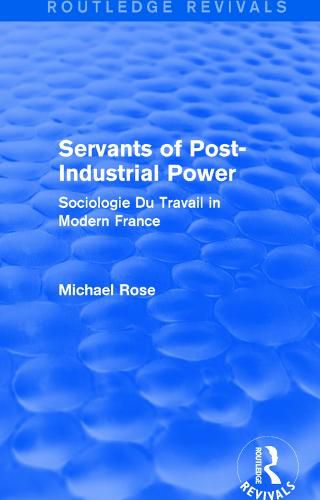Readings Newsletter
Become a Readings Member to make your shopping experience even easier.
Sign in or sign up for free!
You’re not far away from qualifying for FREE standard shipping within Australia
You’ve qualified for FREE standard shipping within Australia
The cart is loading…






This title was first published in 1979: Deftly combining an analysis of socio-economic change and social institutions with political commentary, intellectual biography and theoretical critique, the author identifies the hidden similarities of the different currents in sociologie du travail and accounts for the popularity of such bold but fragile notions as Mallet’s ‘new working class’ or Touraine’s ‘post industrial society’. Simultaneously, the relation between sociologie du travail and the state , management and politics is defined and evaluated. Finally, the author discusses the work of the new generation of investigators emerging after the crisis-point of 1968. His conclusions are relevant not only for the many English speaking social scientistswho have been rediscoveringthe problems of the labour process, but for students of industrial relations, intellectual history, Marxism and modern French society.
$9.00 standard shipping within Australia
FREE standard shipping within Australia for orders over $100.00
Express & International shipping calculated at checkout
This title was first published in 1979: Deftly combining an analysis of socio-economic change and social institutions with political commentary, intellectual biography and theoretical critique, the author identifies the hidden similarities of the different currents in sociologie du travail and accounts for the popularity of such bold but fragile notions as Mallet’s ‘new working class’ or Touraine’s ‘post industrial society’. Simultaneously, the relation between sociologie du travail and the state , management and politics is defined and evaluated. Finally, the author discusses the work of the new generation of investigators emerging after the crisis-point of 1968. His conclusions are relevant not only for the many English speaking social scientistswho have been rediscoveringthe problems of the labour process, but for students of industrial relations, intellectual history, Marxism and modern French society.